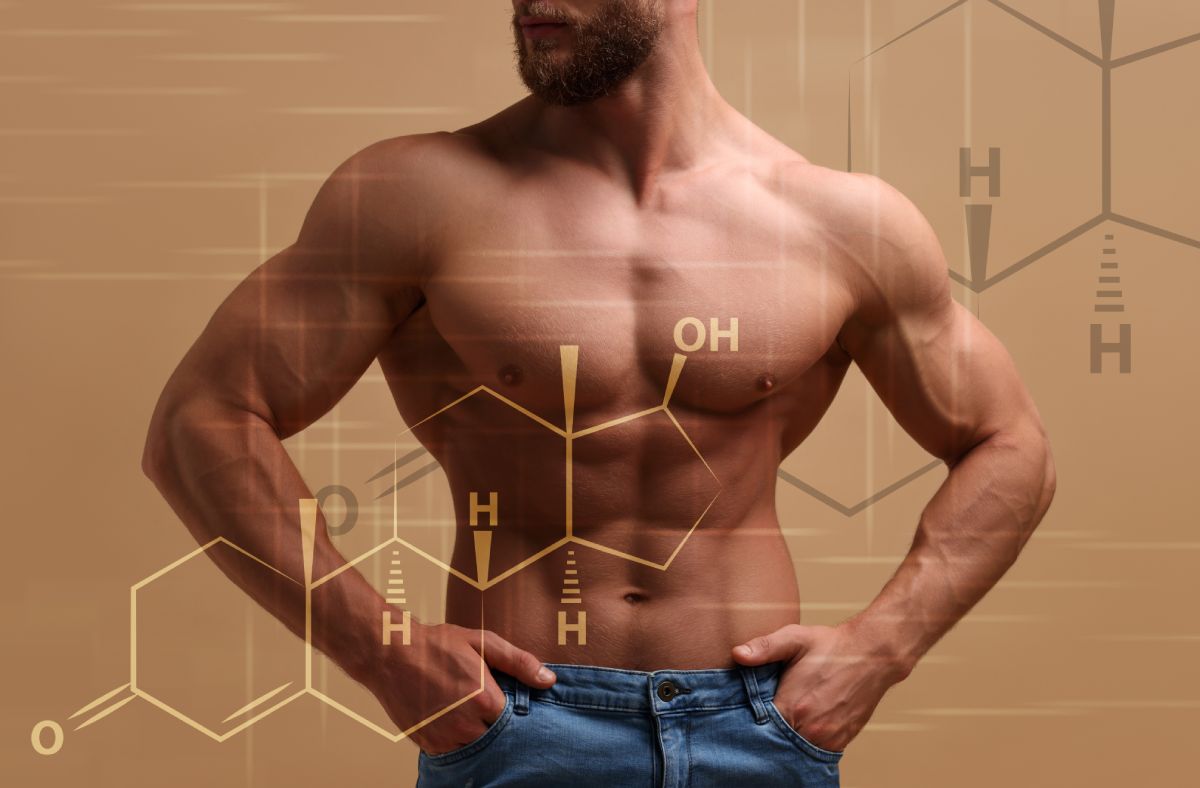Your first round of testosterone is an important step toward achieving your dream body. But how long does testosterone take to work? Let’s find out!
One of the most common questions we receive from patients is: How long does testosterone take to work?
Unfortunately, there isn’t really a black and white answer to this question. Most physicians assert that patients will experience improvement within 4-6 weeks.
But, like most treatment procedures, Low Testosterone Treatment (TRT) is dependant on the individual.
Since this answer is a little ambiguous, we will discuss the signs of testosterone kicking in.
After TRT, patients typically experience similar responses from their bodies. When you start having these experiences, it’s likely your treatment is beginning to kick in.
Read on to learn what to look out for to know when your TRT is working.
How Long Does Testosterone Take to Work: Timeline
Improved Sex Drive and Better Quality Sleep
The first two signs to look for is an improved sex drive and the ability to sleep better at night.
The frequency of erection and ejaculation increases usually around the 3 week mark. However, sometimes it can occur a little sooner or later as well.
Around 12-21 weeks, men are expected to experience steady levels of frequency with ejaculation. Also, around the 3 week mark, men also experience a stronger libido and have more sexual fantasies.
Restlessness among men with low testosterone is common. It prohibits the brain from falling into a deep sleep cycle.
During the early stages of TRT, men typically feel less anxious and more relaxed. This allows them to fall into better sleep patterns.
Better Mood
After a consistent improvement in sex drive and sleep, a patient’s mood changes.
Low testosterone in men often causes them higher levels of depression than others. However, around the 6 week mark of TRT, patient’s mood increases significantly.
Men tend to continue feeling less anxious and unclear throughout this period. They are much less irritable and also experience greater levels of sociability.
Their sexual performance also continues to increase. This can cause greater levels of comfort to men, further curbing a bad-tempered mood.
Change in Body Structure
When patients ask ‘How long does testosterone take to work for body development?’, the answer varies.
But, after falling into a better mental state, men usually notice more changes within their bodies.
This is when they will begin to see changes in fat mass, lean body mass, and muscle strength.
Also, their exercising ability is expected to increase around this time. This also attributes to changes in body development.
These core changes will continue to develop over several months. However, patients see early developments in body structure around the 3 month (or 12 week) mark.
Internal Benefits
Men begin to experience internal benefits around the time their body structure adjusts.
They are able to have more control over their eating habits, and blood sugar levels.
Men begin to see a decrease in blood pressure. This leads to a decrease in serious health threats such as stroke or heart attack.
Cholesterol levels begin to balance out around this time. Patients experience lower levels of LDL Cholesterol and higher levels of HDL Cholesterol.
Several Months Into Treatment
Bone density will continue to develop several months after the initial treatment.
Patient’s Prostate-Specific Antigen (commonly referred to as PSA levels or prostate levels) will increase around this time as well.
Having too high of PSA levels is dangerous for men as it increases their risk for prostate cancer.
Often times, testosterone treatment is considered negative when examining prostate levels. (This is, in fact, inaccurate and shouldn’t dispel a person from receiving treatment.)
Low testosterone treatment helps find a steady balance within prostate levels.
A Year After Treatment: What Can I Expect?
After a year of TRT, men tend to experience the full benefits of treatment.
Patient’s mental state is much more balanced and their brains are able to think much clearer. They are much more positive, happier, and see an increase in their overall well-being.
Their sleep habits are fully restored. This also boosts morale and greater feelings of enjoyment.
Men’s sex lives reach a peak, and they continue to experience great levels of sexual intimacy. Not only does sexual desire increase, but their physical attractiveness continues to develop.
Men will see continued growth in their muscle strength and have much stronger bones.
Their lean body mass is much more developed than it was at the 3-month mark. This leads to a reduction in overall body fat.
Prostate levels do not continue to grow after its initial spike. They have leveled out at this point in treatment.
Blood pressure, cholesterol, and triglyceride levels are also at a healthy state. Lastly, patients will see increased red blood cell formation.
Important Reminders During Low Testosterone Treatment
Upon receiving treatment, you must remember that TRT is not an overnight process. You aren’t going to wake up the next morning with increased body mass and a high sex drive.
Moreso, it’s a gradual process that requires frequent care and attention. Instead of asking “How long does testosterone take to work?”, ask “How is my body processing the treatment?”.
As you see above, most changes occur around the 3-week mark. However, it may not be as noticeable at first.
Remember to stay patient and trust that your body is developing as it should through TRT. Raising your testosterone levels shouldn’t be a race.
Also, it’s likely that treatment won’t be a consistent growth. There will be days and periods when certain elements will start to plateau.
It’s important to not get discouraged and to continue moving forward. It’s completely normal for things to slight infrequency.
Lastly, you need to be in tune with your emotions and what your body is going through. Pay attention to how you’re feeling and be weary if anything feels off (in a bad way).
You may have clicked “How long does testosterone take to work” and expected a direct answer. Unfortunately, this treatment will rely on the individual’s body and their ability to care for it.
Don’t be discouraged by this process. Trust that you are working with a physician who knows what’s best!
Are you interested in low testosterone treatment? Contact us to learn more about our TRT process!





